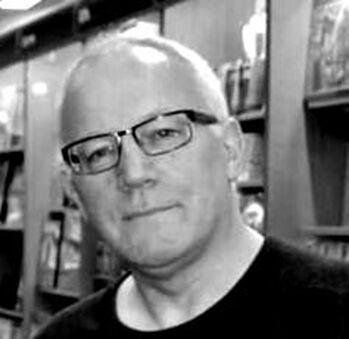
It gives me enormous pleasure to welcome Tony J. Forder onto the website today. Tony is the author of the critically acclaimed, internationally best-selling crime thriller series featuring detectives Jimmy Bliss and Penny Chandler.
Alex: Tell me a bit about yourself, Tony.
Tony: I was born and raised in the east end of London. I began writing at school after reading The Weirdstone of Brisingamen, a fantasy novel by Alan Garner. It inspired me to write because it was the first time that I realised you could simply invent magical worlds and creatures. My main interests when I was younger were sports – watching and taking part in football, ahtletics, rugby, boxing, and karate – and music – listening and playing (guitar mainly). I still enjoy watching sports, and I love listening to music still, as well as playing my guitar a few times a week. But writing has been a part of my life throughout.
Alex: Tell me a bit about yourself, Tony.
Tony: I was born and raised in the east end of London. I began writing at school after reading The Weirdstone of Brisingamen, a fantasy novel by Alan Garner. It inspired me to write because it was the first time that I realised you could simply invent magical worlds and creatures. My main interests when I was younger were sports – watching and taking part in football, ahtletics, rugby, boxing, and karate – and music – listening and playing (guitar mainly). I still enjoy watching sports, and I love listening to music still, as well as playing my guitar a few times a week. But writing has been a part of my life throughout.
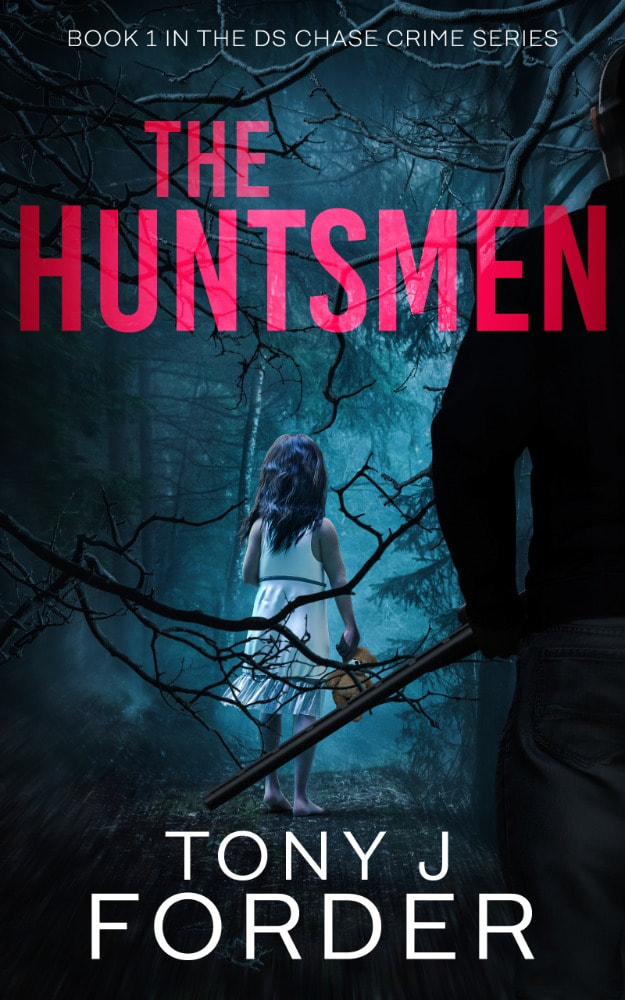
Alex: How would you describe your writing, and are there particular themes that you like to explore?
Tony: I have no desire to become a ‘cause’ writer, using my work as some kind of political or social statement. However, as a crime and thriller writer you naturally touch on both, and the characters you create suck you in. It’s difficult not to write about social themes in particular, because crime is very much a social part of life for the criminals and victims alike. Occasionally you have to include themes some may consider tough to read, but my style is to be not overly graphic, rather to provide enough information to allow the reader to imagine the devious and dark minds behind some crimes. Essentially, I write to entertain, because that’s what a good book does for me as a reader.
Alex: Are you a writer that plans a detailed synopsis or do you set out with a vague idea and let the story unfold as you write?
Tony: I set out at various points, but never with a detailed plot. I tend to have an idea where I’m going or where I’d like it to go, but the natural flow of a criminal investigation takes me to places I had not anticipated, as do the characters. I began one book with a distressed young woman on a rooftop in need of saving by my main character. I never intended for her to become a major character in the book, but she managed to work her way from my head into my heart and so the book went in a different direction to the one I had envisaged.
Tony: I have no desire to become a ‘cause’ writer, using my work as some kind of political or social statement. However, as a crime and thriller writer you naturally touch on both, and the characters you create suck you in. It’s difficult not to write about social themes in particular, because crime is very much a social part of life for the criminals and victims alike. Occasionally you have to include themes some may consider tough to read, but my style is to be not overly graphic, rather to provide enough information to allow the reader to imagine the devious and dark minds behind some crimes. Essentially, I write to entertain, because that’s what a good book does for me as a reader.
Alex: Are you a writer that plans a detailed synopsis or do you set out with a vague idea and let the story unfold as you write?
Tony: I set out at various points, but never with a detailed plot. I tend to have an idea where I’m going or where I’d like it to go, but the natural flow of a criminal investigation takes me to places I had not anticipated, as do the characters. I began one book with a distressed young woman on a rooftop in need of saving by my main character. I never intended for her to become a major character in the book, but she managed to work her way from my head into my heart and so the book went in a different direction to the one I had envisaged.
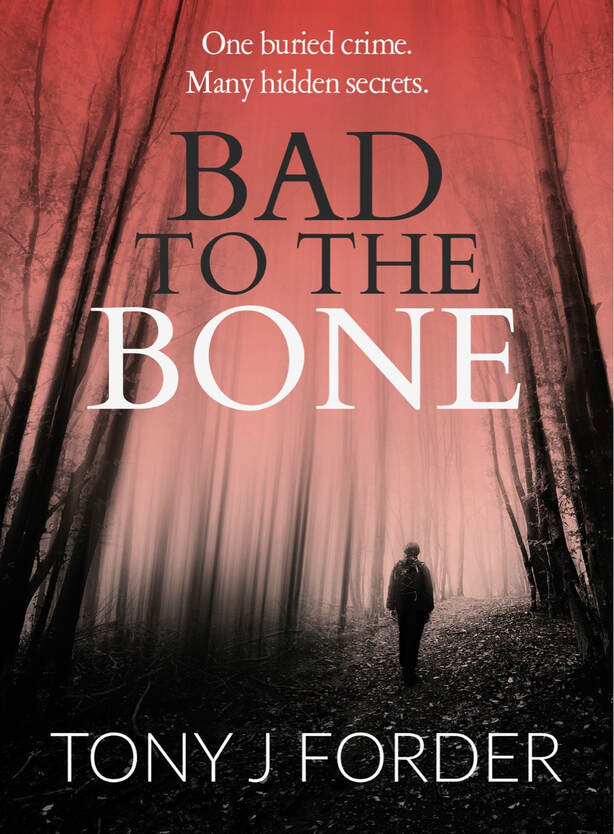
Alex: Tell us about your latest novel.
Tony: My most recent novel, The Huntsmen, is the first in a new UK crime series. I already have a reasonably successful crime series, featuring DI Jimmy Bliss and DS Penny Chandler, but when this storyline came to me I didn’t think of it as a Bliss novel. I’d considered starting a new series anyway, and so this seemed like the logical time to take the plunge. I’m so glad I did – the reviews have been staggering, and the new characters of DS Royston Chase and DC Claire Laney have proven to be immediately popular. Unlike the Bliss series, which is set in Peterborough where I now live, the Chase books are set in Wiltshire, in an area I know well. The book opens with two shocking chapters, and I allow its secrets to unfold steadily. It’s about power and the absue of that power, with flawed human beings at its centre.
Alex: What was the first book you read?
Tony: I have no idea, but I was a huge fan of the Enid Blyton ‘5’ and ‘7’ books, plus Just William and also Jennings and Darbishire. I then moved onto fantasy, but also the action-adventure thrillers my father read. I was an early and avid reader, and that has thankfully never left me.
Tony: My most recent novel, The Huntsmen, is the first in a new UK crime series. I already have a reasonably successful crime series, featuring DI Jimmy Bliss and DS Penny Chandler, but when this storyline came to me I didn’t think of it as a Bliss novel. I’d considered starting a new series anyway, and so this seemed like the logical time to take the plunge. I’m so glad I did – the reviews have been staggering, and the new characters of DS Royston Chase and DC Claire Laney have proven to be immediately popular. Unlike the Bliss series, which is set in Peterborough where I now live, the Chase books are set in Wiltshire, in an area I know well. The book opens with two shocking chapters, and I allow its secrets to unfold steadily. It’s about power and the absue of that power, with flawed human beings at its centre.
Alex: What was the first book you read?
Tony: I have no idea, but I was a huge fan of the Enid Blyton ‘5’ and ‘7’ books, plus Just William and also Jennings and Darbishire. I then moved onto fantasy, but also the action-adventure thrillers my father read. I was an early and avid reader, and that has thankfully never left me.
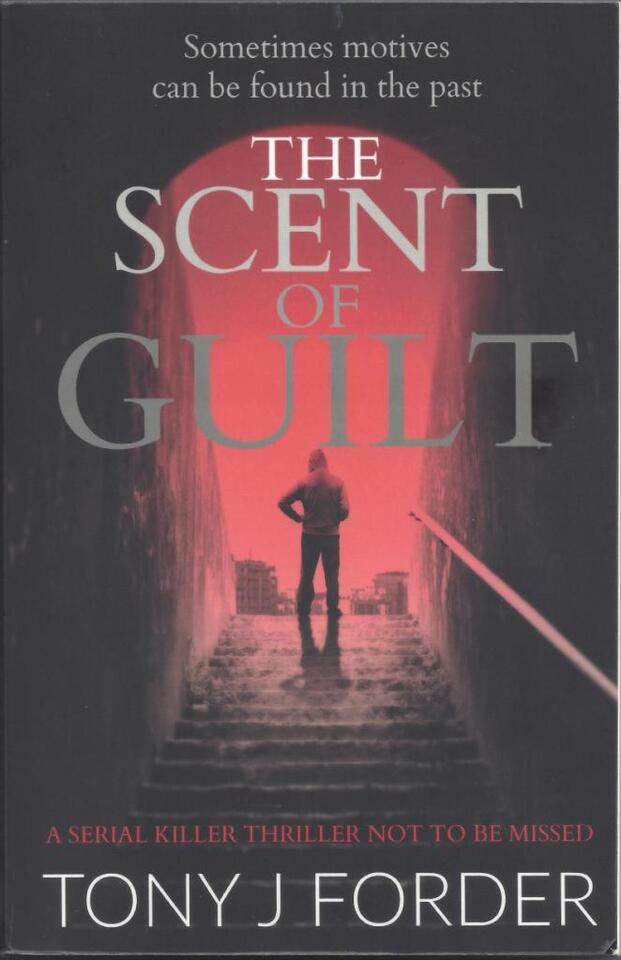
Alex: How much research do you do and what does it usually entail?
Tony: Huge amounts, obviously depending on the storylines. As a crime writer I’ve had to learn about policy and procedure, interview techniques, detaining and arrest procedures, the legal process, and having an all-round appreciation of how major crimes teams function. I have an insider at the police station I use for my Bliss series, and through him I’ve been able to paint a pretty accurate portrait of the place, but also add little true stories and present them as part of the fiction. I’ve had to research some mundane things but equally some absolutely groteseque deviant behaviour. I’ve liaised with the Met, with the National Crime Agency, with the RAF at my local base at Wittering, and I’ve looked into the workings of the securiry services and joint task forces. In terms of crimes, I’ve had to research county lines drugs, people trafficking, decapitation, Lingchi (aka Death of 1000 Cuts), necklacing, and many, many more sickening ways in which humans act towards other humans. This research occurs in a variety of forms: online search engines, mailing people or organisations, talking directly with them, plus asking questions of online groups. I tend to acquire a great deal more knowledge than I actually use, but better that than have to guess.
Alex: Do you ever base your characters on people you have encountered in real life?
Tony: I often use characteristics of people I’ve known, forming a kind of amalgalm of several in the one individual. However, one of my bad guys was very much based on somebody I worked with – literally one of the most peculiar people I’ve ever encountered.
Tony: Huge amounts, obviously depending on the storylines. As a crime writer I’ve had to learn about policy and procedure, interview techniques, detaining and arrest procedures, the legal process, and having an all-round appreciation of how major crimes teams function. I have an insider at the police station I use for my Bliss series, and through him I’ve been able to paint a pretty accurate portrait of the place, but also add little true stories and present them as part of the fiction. I’ve had to research some mundane things but equally some absolutely groteseque deviant behaviour. I’ve liaised with the Met, with the National Crime Agency, with the RAF at my local base at Wittering, and I’ve looked into the workings of the securiry services and joint task forces. In terms of crimes, I’ve had to research county lines drugs, people trafficking, decapitation, Lingchi (aka Death of 1000 Cuts), necklacing, and many, many more sickening ways in which humans act towards other humans. This research occurs in a variety of forms: online search engines, mailing people or organisations, talking directly with them, plus asking questions of online groups. I tend to acquire a great deal more knowledge than I actually use, but better that than have to guess.
Alex: Do you ever base your characters on people you have encountered in real life?
Tony: I often use characteristics of people I’ve known, forming a kind of amalgalm of several in the one individual. However, one of my bad guys was very much based on somebody I worked with – literally one of the most peculiar people I’ve ever encountered.
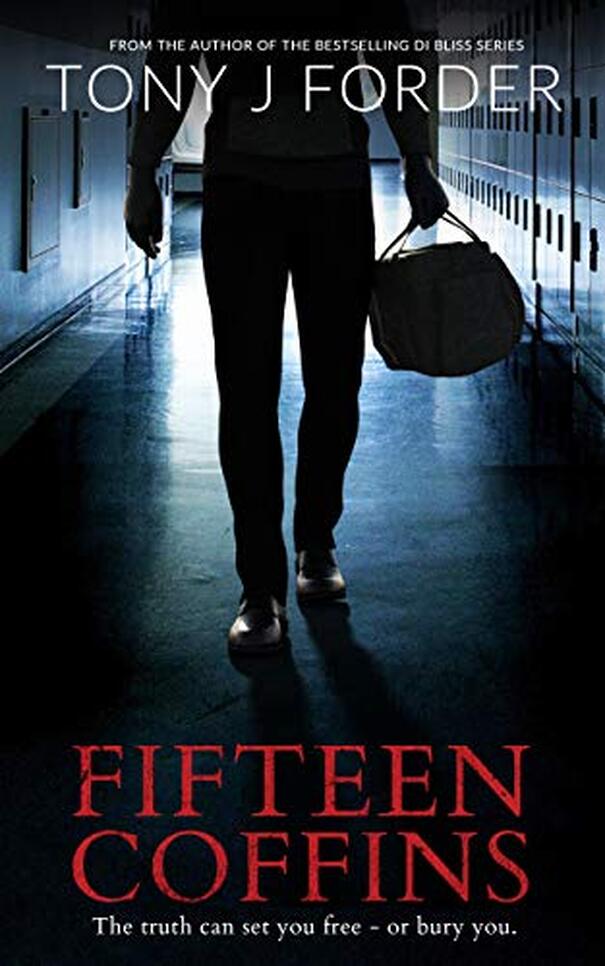
Alex: Which was the last book you read that blew you away?
Tony: Sadly, books no longer do this to me. Perhaps I read them differently these days. When I’m writing I tend to go for autobiographies, biographies or humorous novels, occasionally true crime, but anything other than crime fiction. The last book to have a deep effect on me was The Silence of the Lambs. I have enjoyed hundreds of books since, but that one really did blow me away.
Alex: How do you market your books?
Tony: It’s difficult. I promote my work as much as I am able to in Facebook groups and on Twitter, but I also run Facebook and Amazon adverts. I also have short blog tours and promote the reviews from well-respected bloggers.
Alex: What are your interests aside from writing? And what do you do to unwind?
Tony: My interests today are much the same as those I had when I was younger. One I’ve lost over time is art – I was an illustrator, and indeed my first job was as an illustrator for a commercal art company – but I allowed it to lapse. I still enjoy my sports despite money having ruined much of what I enjoyed. Music is my first love (as John Miles wrote) and although a health condition means I don’t hear as clearly as I would like, I still listen and play as often as I can.
Tony: Sadly, books no longer do this to me. Perhaps I read them differently these days. When I’m writing I tend to go for autobiographies, biographies or humorous novels, occasionally true crime, but anything other than crime fiction. The last book to have a deep effect on me was The Silence of the Lambs. I have enjoyed hundreds of books since, but that one really did blow me away.
Alex: How do you market your books?
Tony: It’s difficult. I promote my work as much as I am able to in Facebook groups and on Twitter, but I also run Facebook and Amazon adverts. I also have short blog tours and promote the reviews from well-respected bloggers.
Alex: What are your interests aside from writing? And what do you do to unwind?
Tony: My interests today are much the same as those I had when I was younger. One I’ve lost over time is art – I was an illustrator, and indeed my first job was as an illustrator for a commercal art company – but I allowed it to lapse. I still enjoy my sports despite money having ruined much of what I enjoyed. Music is my first love (as John Miles wrote) and although a health condition means I don’t hear as clearly as I would like, I still listen and play as often as I can.
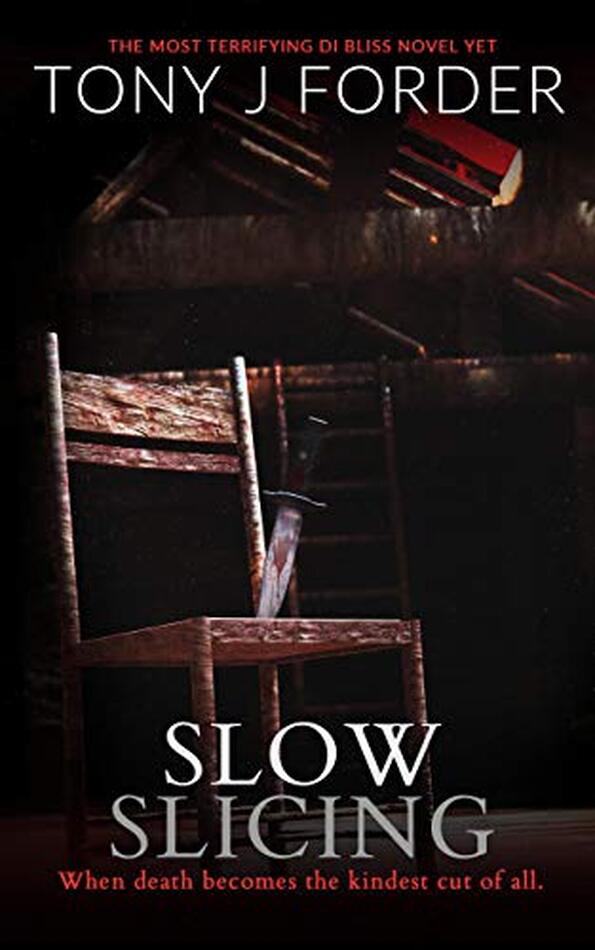
Alex: Which authors do you particularly admire and why?
Tony: When I was younger and wrote fantasy and horror, it was Stephen King. He was at the top of his game and I bought everything he put out. I also enjoyed Herbert, Koontz, and Straub. I’ve always liked Charles Dickens, too, and still dip into his work. Today, and for the past couple of decades, my favourite author is Michael Connelly. His book The Poet is one of my all-time favourite books, but I most admire him for his Harry Bosch series. He was a newspaper journalist on the crime beat, and his depth of knowledge and understanding of police work is second to none. But I also like the fact that he understands he’s writing fiction, and will allow himself to stray beyond procedure – as I do.
Alex: Tony, thank you so much for your time and for such fullsome and thoughtful answers. It's been fascinating and insightful. I look forward to reading your latest novel.
Tony: Many thanks for inviting me over, Alex. I’ve enjoyed it a great deal.
Tony: When I was younger and wrote fantasy and horror, it was Stephen King. He was at the top of his game and I bought everything he put out. I also enjoyed Herbert, Koontz, and Straub. I’ve always liked Charles Dickens, too, and still dip into his work. Today, and for the past couple of decades, my favourite author is Michael Connelly. His book The Poet is one of my all-time favourite books, but I most admire him for his Harry Bosch series. He was a newspaper journalist on the crime beat, and his depth of knowledge and understanding of police work is second to none. But I also like the fact that he understands he’s writing fiction, and will allow himself to stray beyond procedure – as I do.
Alex: Tony, thank you so much for your time and for such fullsome and thoughtful answers. It's been fascinating and insightful. I look forward to reading your latest novel.
Tony: Many thanks for inviting me over, Alex. I’ve enjoyed it a great deal.
